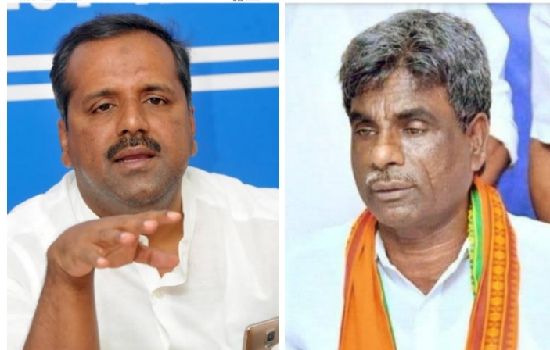Bengaluru, Jun 22: Concerned over the increase in COVID-19 cases in the city, Karnataka Chief Minister B S Yediyurappa on Monday directed officials to implement lockdown measures strictly in the clusters which have reported more infections.
Yediyurappa held a meeting with Ministers and senior officials regarding containing COVID-19 in Bengaluru and said it can be achieved only if preventive measures are implemented strictly and asked the officials to work in this direction.
"Lockdown shall be implemented strictly in the clusters which reported more cases, especially, K.R. Market and surrounding areas such as Siddapura, VV Puram, Kalasipalya etc. It was decided to seal the adjoining streets, where the cases are reported, a release from the Chief Minister's office said. Stringent action would be taken against those who violate quarantine norms and FIR would be filed if necessary, it said.
Till Sunday evening, the state capital has reported 1,272 cases of COVID-19, including 64 deaths and 411 discharges. On Sunday, as many as 196 fresh cases were recorded. Officers were directed to ensure hygiene and provide other basic amenities to the people who were quarantined in the social welfare department's hostels and other government institutions.
"COVID-19 should be contained without affecting the economic activities in Bengaluru, which resumed recently," the Chief Minister said.
Noting that booth-level officers and volunteers were working to trace contacts and monitor quarantined persons, he said the COVID war room shall have real-time information on the availability of beds in various designated hospitals and facilitate treatment to the infected without loss of time.
A bulletin from the Bruhat Bengaluru Mahanagara Palike (BBMP), the city civic body, said there were 298 active containment zones in the city. BBMP Commissioner B H Anil Kumar along with the Chamarajpet Congress MLA B Z Zameer Ahmed Khan visited a few slum areas in the city to take stock of the COVID-19 situation, officials said.
![]()





Comments
Hi sir I am 19years old . Pleas inform Me when is The U19 Selections in Banglore Mobile:-9611343907
sir i am a right hand batsman i m a local hero in my locality pls give me a chance to show my talent sir i m good fielder pls any selection reply me sir
sir i am an right hand batsman i m a local hero in my locality pls give me a chance to show my talent sir i m good fielder pls any selection reply me sir
Hi Sir,
My Name : Kihsan 18 Year Old My Date of Birth 29-07-1997 I Want To Play Under 19 State Team Am Right hand Batsman & Wicket Keeper I Am Not Best Batsman But I Practice EveryDay in KIOC Academy Bangalore, Contact Number :26509171,2650778,2650776,26620022 My Gmail: [email protected]
Thank u Sir,
Pagination
Add new comment